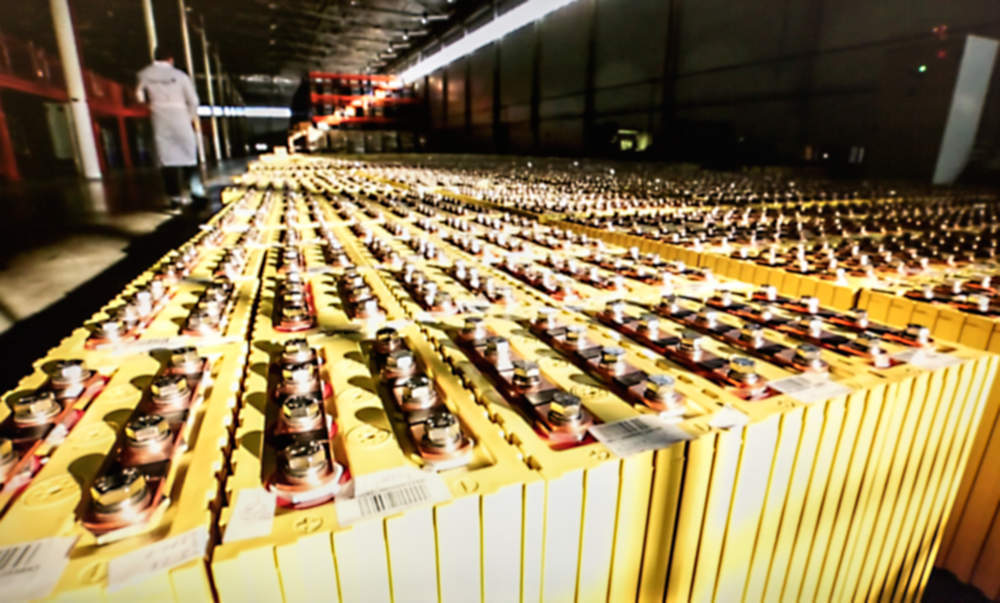
Battery supplier Samsung SDI has announced it will recycle cobalt from used smartphone batteries as a way to secure supplies of the metal.
In order to successfully recycle the cobalt-based lithium ion batteries, Samsung SDI is going to buy a stake in a company that specialises in recycling technology. It has not yet revealed who its recycling partner will be.
Another producer of batteries, Umicore, has invested in boosting its capacity to recycle cobalt at its facilities in Olen, Belgium and encouraged other companies reliant on cobalt to follow suit.
What was said:
Umicore chief executive Marc Grynberg said:
We have billions of dismissed end-of-life smartphones …. That could be utilised to power millions of electric vehicles.
If there is one thing that needs to be done in the first place starting now is to make sure there are mechanisms in place to motivate people to return their disused smartphones.
How well do you really know your competitors?
Access the most comprehensive Company Profiles on the market, powered by GlobalData. Save hours of research. Gain competitive edge.
 Company Profile – free sample
Company Profile – free sampleThank you!
Your download email will arrive shortly
Not ready to buy yet? Download a free sample
We are confident about the unique quality of our Company Profiles. However, we want you to make the most beneficial decision for your business, so we offer a free sample that you can download by submitting the below form
By GlobalDataRecycling will be essential because mining of raw materials won’t be enough to meet the world’s needs if electric vehicle demand continues to rise at the current pace beyond 2025
Simon Moores, managing director, Benchmark Mineral Intelligence said:
Recycling of batteries is always in the top three questions we regularly receive at Benchmark and for good reason. It is one of the most important challenges faced by the battery and auto industry and one that is yet to be cracked.
What this means:
Roughly 60 percent of the world’s cobalt supplies come from the Democratic Republic of Congo (DRC), a country wreaked by severe political instability.
This instability has adversely affected cobalt mining and exports. Hindrances on cobalt production in the DRC combined with the electric-vehicle boom has seen prices more than triple since 2016. They peaked at around $19 per pound (lb).
The already high demand for cobalt for lithium ion batteries for electric vehicles is expected to rise from 12,000 tons in 2017 to 95,000 tons by 2026, according to CRU.
Macquarie Research predicts that trouble in the DRC and rising demand for electric vehicles could lead to a four-year cobalt shortage.
Macquaire said:
The global cobalt market is becoming ever more dependent on supply from the Democratic Republic of Congo, where geopolitical risk is again rising…with a transfer of presidential power due next year, a process which has not gone smoothly over history.
The supply and demand situation has pushed some battery producers and car manufacturers to attempt to reduce their dependence on the DRC as a source of cobalt and thus seek alternative solutions, and recycling lithium ion batteries in smartphones is a potentially promising solution.
Umicore have claimed that recycling 1.6bn old phones, the number of unused smartphones worldwide according to Fairphone, will satiate the demand from millions of electric vehicles.
CRU forecast that minerals extracted from recycled batteries could contribute 25,000 tons to the global supply of cobalt by 2025.
Background:
Lithium ion batteries are necessary for electric vehicles. This is because they are rechargeable.
Lithium ions move from the negative electrode to the positive electrode during discharge and can move back when charging. The movement is facilitated by the electrodes being made from an intercalated, rather than metallic, lithium compound.
They have been used in smartphones, laptops and other gadget. Most handheld electronics’ lithium ion batteries are made from lithium cobalt oxide which has a high energy density. However, Lithium ion batteries can also be made from Lithium ion phosphate, Lithium ion manganese oxide and nickel-manganese-cobalt oxide, but these have lower energy density.
Samsung SDI has also sought to mitigate cobalt demand and supply issues by working on developing Lithium ion batteries that use less cobalt and more nickel, which there is a plentiful supply of.
Its nickel-cobalt-manganese batteries contain as much as 88 percent nickel. LG Chem have also focused on increasing the proportion of nickel in its Lithium ion batteries.
EnZinc have followed a similar route. It looked into using zinc and nickel to produce batteries for electric vehicles since there are plentiful supplies of Zinc all across the world.
Toyota Motor Corp and Panasonic instead sought to extract materials from hybrid electric vehicles.
Some other companies have not looked for innovative solutions to the cobalt supply and demand conundrum and instead tried to lock-in supply deals with those companies involved in the mining of cobalt in the DRC, such as Glencore.
These car manufacturers include Volkswagen, BMW and Tesla Motors.




